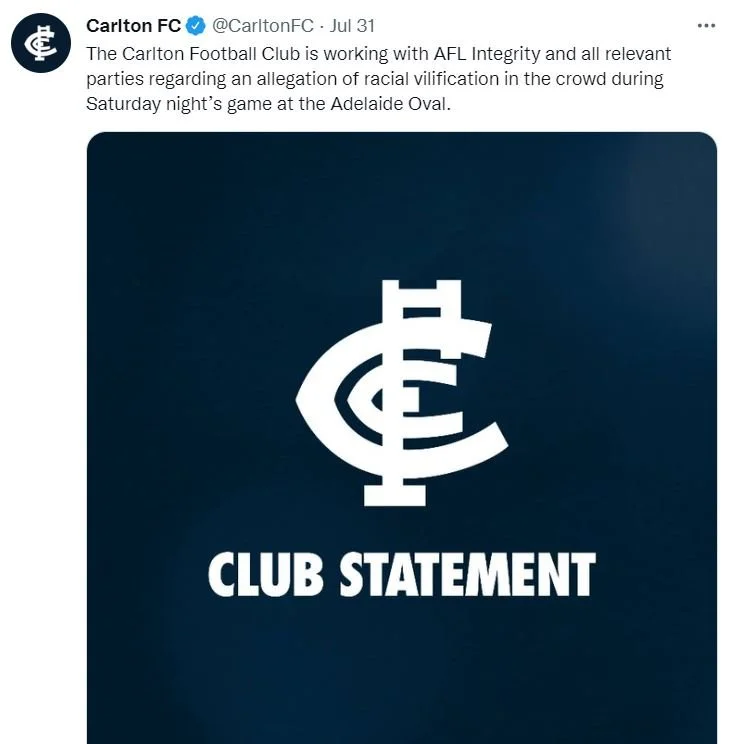Racism in the AFL appears lawless, but it needn’t be
Another week and another incident of racial vilification against an AFL player. On Saturday evening Gold Coast Football Club put out a statement saying that they condemned “comments” against one of its players, finishing with the hashtag #RacismItStopsWithMe.
This follows recent stories about racist slurs against a Carlton player in Adelaide, racist taunts against an Aboriginal Brisbane Lions player, racist attacks against two Aboriginal Richmond Tigers players, racist attacks against an Aboriginal Melbourne Demons player and evidence that the Victorian Amateur Football Association has also failed to address racism amongst its players.
Those stories are just from the last month. Racism clearly retains a strong place within the AFL.
Beyond ritualistic statements and dead-end investigations, there is little visible action from AFL HQ or the clubs.
What is strange in the current landscape, is that while clubs ask “when will it stop”, none are asking - is this lawful? In many cases, racist incidents affecting AFL players and officials rub right up against existing vilification laws.
In Australia, every jurisdiction except the Northern Territory has protections against vilification.[i] These laws were enacted to prevent the exact kind of behaviour that we are speaking to here – statements or conduct that harm or incite hatred towards: online slurs, racist taunts, imputations.
There are straightforward mechanisms to enforce these rights.
Noting the clubs above, Victoria and Queensland having accessible complaints-based processes that can deal with a broad range of remedies. These are usually by agreement between the parties and can include an apology, agreements to undertake personal development or training, removal of content or monetary compensation (or perhaps donation of money to a worthy cause).[ii]
In particularly egregious cases, there may criminal penalties for individuals, such as there was in Victoria.
Of course, some players may not wish to pursue complaints. Making complaints about vilification, discrimination or sexual harassment are known to put significant burdens on the people already harmed. However, there are mechanisms to deal with this. Most laws allow “representative complaints”, meaning clubs or the AFL can, with the consent of the player or affected person, pursue the complaint on their behalf.
The AFL and clubs may have an interest in taking more action (beyond their obvious duty to their players’ welfare). While the AFL is currently preoccupied with risk of a class action regarding head-trauma, it may want to turn its mind to the possibility that similar claims could come from a failure to prevent racism-based trauma. Taking appropriate action to mitigate these risks seems good leadership, but also good risk-management.
The law is not a silver-bullet to racism, but “education” without accountability is a blank. People need an incentive to educate themselves. Better use of existing racial vilification laws would be a good place to start.
~
Further information
Information on each state and territory’s vilification laws below:
[i] There are also national laws (Racial Discrimination Act 1975) that operate alongside state/territory laws. This means that people can choose whether they want to resolve their issue at either state/territory or national levels.
[ii] There are also laws for online vilification that are administered by the eSafety Commissioner, though the remedies are not quite as broad: https://www.esafety.gov.au/report



